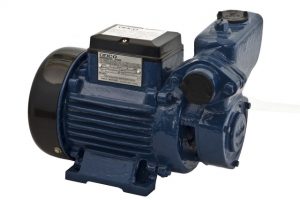A vacuum pump is a device that removes air or gas molecules to create a vacuum in an enclosed space of equipment. Sucking the air or gas molecules serves to reduce pressure buildup from the blow of combustion gases especially in industrial air compressors. The mechanism is used in several types of industrial equipment to generate low vacuum through positive displacement technology or high vacuum through momentum transfer and entrapment. These three dynamics define the three major categories of vacuum pumps.
- Positive displacement vacuum pumps create a low vacuum by expanding a hollow to allow gas molecules to flow out of an enclosed cylinder. The hollow is then blocked and the gas released to the atmosphere. Doing this expands the volume of the container.
- Momentum transfer vacuum pumps accelerate gas molecules from the vacuum to the exhaust. The pump uses the law of liquids; the rate of molecule flow is defined by the difference in pressure.
- Entrapment vacuum pumps use chemical reactions to remove gases from the enclosed cylinder by forming a thin film and expelling it from the space to create a vacuum. They are often used together with positive displacement and momentum vacuum pumps.
Uses of industrial vacuum pumps
Vacuum pumps are used in a wide range of industrial processes. Below are examples of industrial contexts and processes where vacuum pumps are used.
- In electric power, vacuum pumps are used in processes such as geothermal gas removal and pressure impregnation in transformers.
- In chemical industries, vacuum pumps are employed in gas recovery, recycling processes, gas filtration, collection, and packaging.
- In mining, vacuum pumps boost natural gas and allow gas recovery and filtration.
- In the medical industry, vacuum pumps are a central part of the vacuum station used in surgeries and treatment processes such as mucus suction.
- In environmental industries, vacuum pumps and air compressor fittings can be used in wastewater treatment and purification, the production of biogas, and waster digester processes among others.
- In food and beverage industries, vacuum pumps are used in mineral water de-aeration processes, sterilization of bottled and canned foods, and the humidification of products such as tobacco and coffee.

Why the use of vacuum pumps is important
The importance of vacuum pumps is defined by the function that they serve in industrial equipment. Here are 3 functions of vacuum pumps in industrial equipment:
- Checking air pressure buildup
The main function of vacuum pumps is to reduce the amount of pressure that is created by a blow from combustion gases in equipment. Pressure buildup can go beyond the piston rings into the pan and cause retarded function in equipment. Sucking gases to create vacuums prevents this from happening.
- Preserving the engine of industrial equipment
Industrial equipment is generally high performance. This means that it is exposed to consistent wear and tear. The use of vacuum pumps increases the horsepower of the equipment and keeps the engine oil clean for a longer time. This means that the life of the equipment is prolonged.
- Enhance the flow of oil in industrial equipment
In industrial equipment that uses oil, creating vacuum enhances the speed at which oil runs in the engine, thus preventing oil starvation. The vacuum allows the oil to be sucked and to flow easily to the different parts of the engine where it is needed. This implies greater efficiency in the use of the equipment.
In sum, the use of vacuum pumps in industrial equipment has an efficiency function that ensures optimal running and longevity of the equipment’s life.